All posts in Legal Empowerment
-
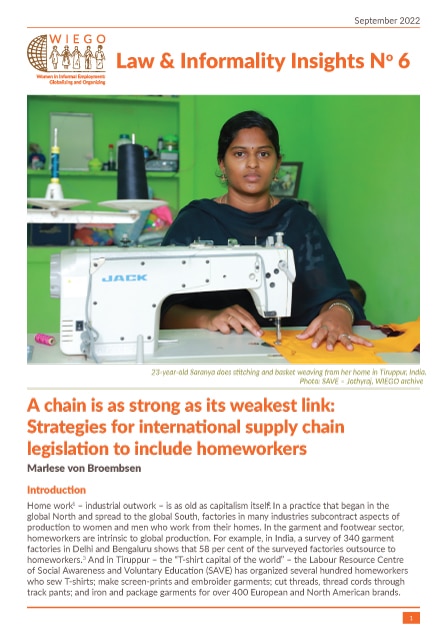 Law & Informality Insights
Law & Informality Insights
A Chain is as Strong as its Weakest Link: Strategies for International Supply Chain Legislation to Include Homeworkers
This publication – A Chain is as Strong as its Weakest Link: Strategies for International Supply Chain Legislation to Include Homeworkers...
Read More -
Journal Articles
Book Review: The Informal Economy Revisited: Examining the Past, Envisioning the Future
Released in 2020, the book “The Informal Economy Revisited: Examining the Past, Envisioning the Future” has been reviewed by...
Read More -
Jul 19 2022
Transforming the traditional social contract: Reflections from “Social Contracts and Informal Workers in the Global South”
- July 19, 2022
- Online
On July 19, 2022, WIEGO will launch the new volume, Social Contracts and Informal Workers in the Global South, where the editors and contributors...
Details -
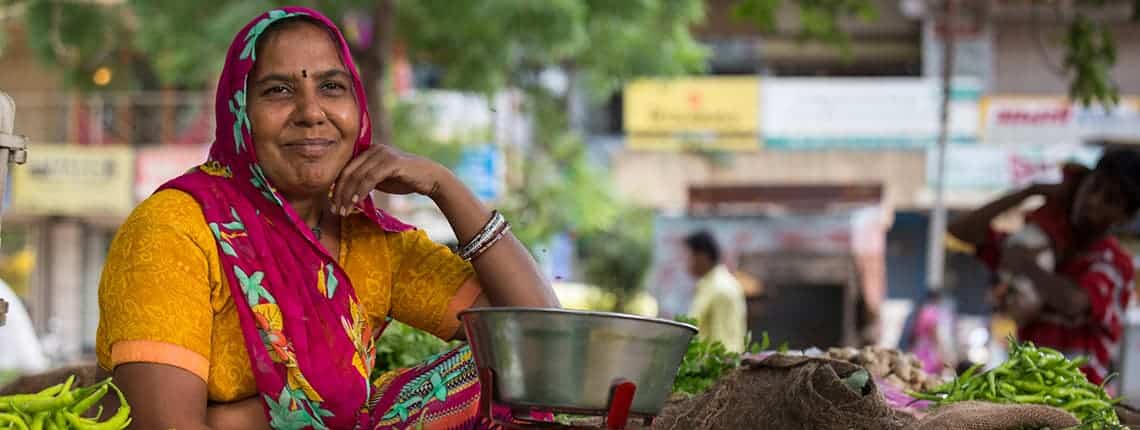 Post
Access to Public Space June 13, 2022
Post
Access to Public Space June 13, 2022India’s Street Vendor Protection Act: Good on Paper But Is It Working?
India’s Street Vendor Protection Act was enacted after a long struggle and is widely lauded, yet a close look nearly a decade later shows...
Read More -
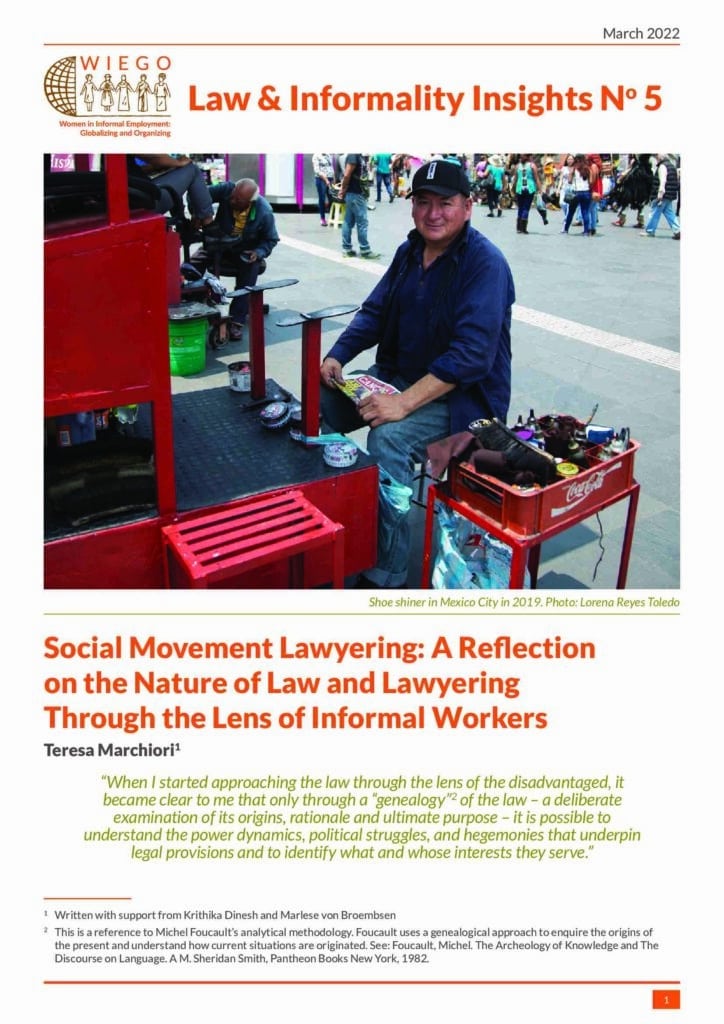 Law & Informality Insights
Law & Informality Insights
Social Movement Lawyering: A Reflection on the Nature of Law and Lawyering Through the Lens of Informal Workers
Applying insights from critical legal studies, this issue of Law and Informality Insights explores how informal workers use the law to resolve...
Read More -
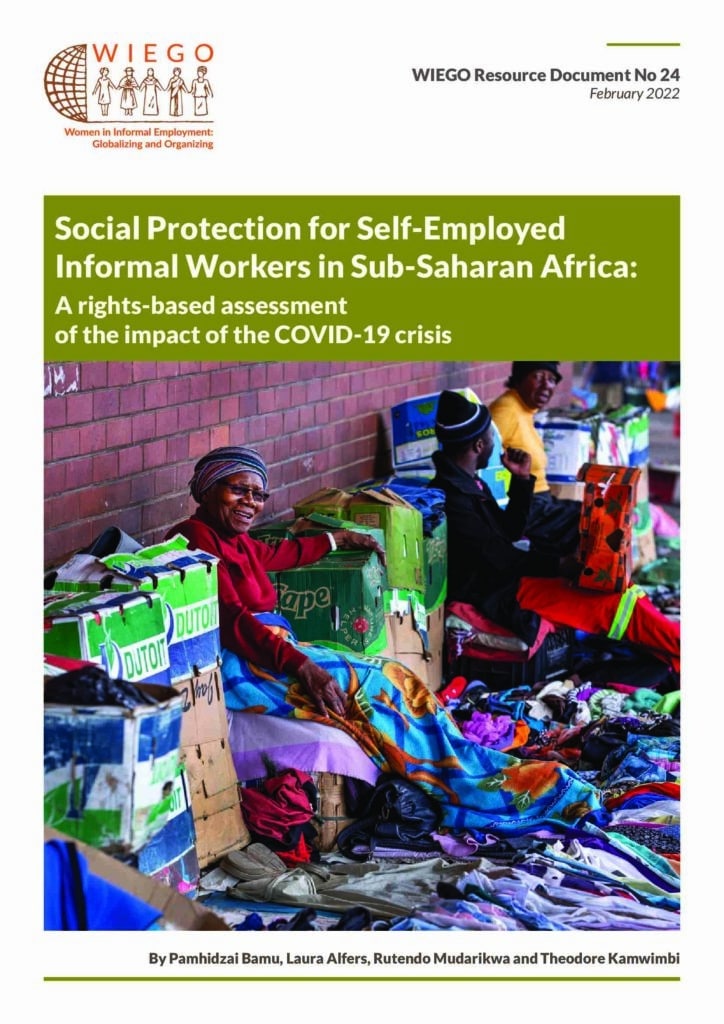 Resource Documents
Resource Documents
Social Protection for Self-Employed Informal Workers in Sub-Saharan Africa: A rights-based assessment of the impact of the COVID-19 crisis
Informal workers make up a large proportion of the “missing middle” in social protection – those who are not considered vulnerable enough...
Read More -
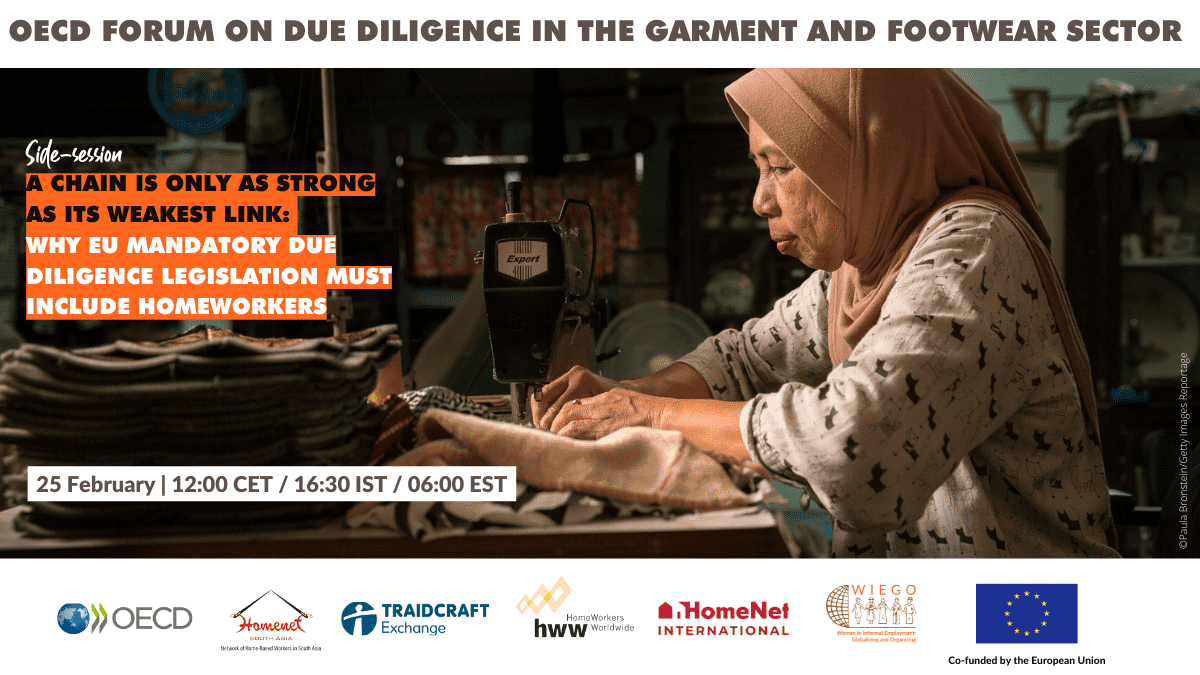 Feb
25
2022
Feb
25
2022
A chain is as strong as its weakest link: Why EU mandatory due diligence legislation must include homeworkers
- February 25, 2022
- Online
Watch this 90-minute discussion, which makes the case for homeworkers to be included in EU legislation and corporate due diligence. This...
Details -
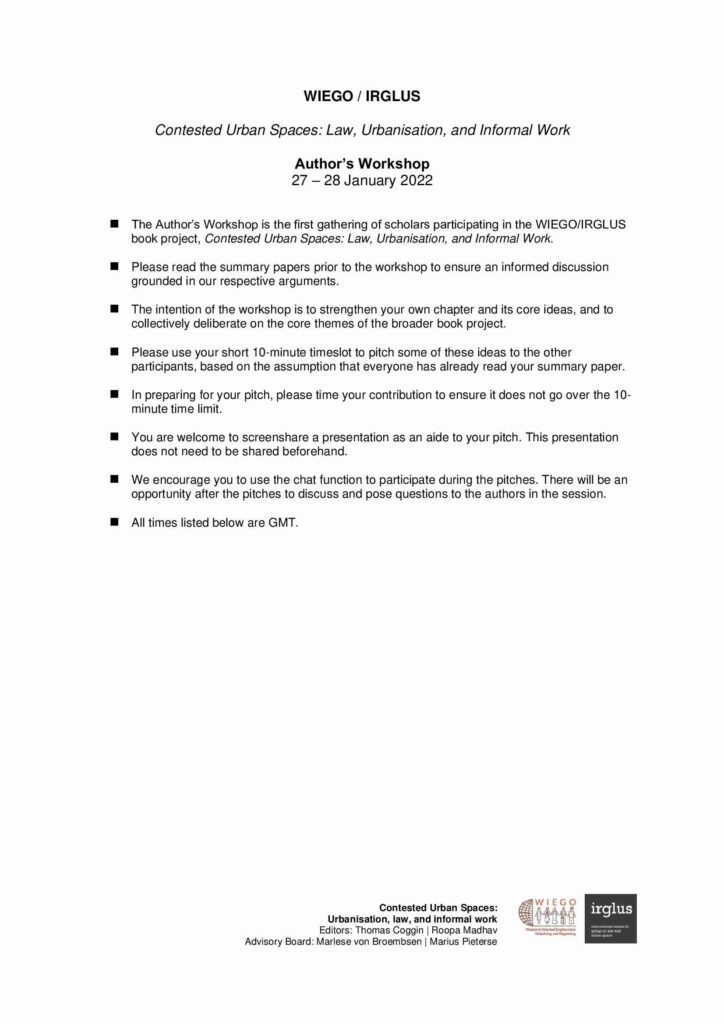 Toolkits and Guides
Toolkits and Guides
Author’s Workshop: Contested Urban Spaces: Law, Urbanisation, and Informal Work – Programme
Contested Urban Spaces: Urbanisation, Law, and Informal Work is a two-year edited book project by WIEGO and IRGLUS that explores this theme...
Read More -
Jan 27 2022
Author’s Workshop: Contested Urban Spaces: Law, Urbanisation, and Informal Work
- January 27, 2022 - January 28, 2022
- Online
Date: January 27 – January 28, 2022 Programme
Details -
Project
Empowering Domestic Workers: Community Paralegals Project
Community paralegals –who are members of a community or group trained in the law to assist their fellow community or group members with legal...
Read More